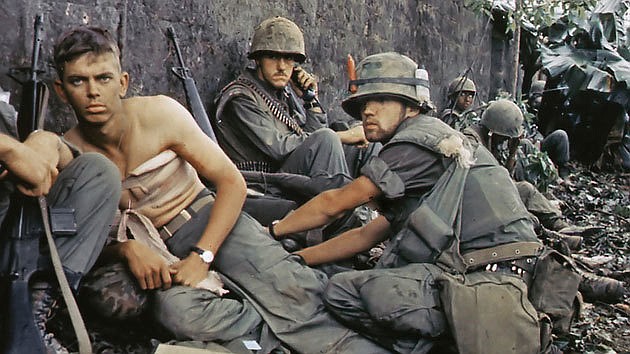- April 25, 2024
-
-
Loading

Loading

The Longboat Observer published Vietnam veteran Terry Garlock’s view of the 18-hour Vietnam War documentary produced by Ken Burns and Lynn Novick on Oct. 5.
Garlock admits in his first paragraph that he and other veterans predicted the film would have an anti-war bias before they saw it, and that prejudgment clearly influenced their perception of the series.
To begin with, Garlock insists that Ho Chi Minh was a communist, not a nationalist, when the documentary showed convincingly that he was both. Communism and nationalism are not mutually exclusive concepts, and Russian President Putin is a present-day example of that.
Communism was the primary concern of U.S. foreign policy at the time, however, and the idea that communism would take over one Southeast Asian country after another was the dominant view in the U.S. departments of State and Defense.
At least partially because of this view, President Eisenhower secretly sent supplies to help the French defend their fort at Diem Bien Phu. That was the first mistake, and Presidents Kennedy, Johnson and Nixon made the situation worse by sending more and more troops to South Vietnam — even though they acknowledged privately, as told in the documentary, that the war was unwinnable.
Each president did this because he thought he could not win re-election if he were the first American president to lose a war. Johnson eventually chose not to run for a second term when the collective wisdom of the American people, including J. William Fulbright and George Kennan, eventually convinced him of what early advisers had told him a long time before: We could not win the war.
Mr. Garlock insists we could have won the war, however, if overwhelming force had been used, but he never explains what would constitute a “win.”
Even if we had been able to defeat North Vietnam’s regular army, post-war analysis of our attempt to cut off supplies to the Viet Cong in the south by bombing the Ho Chi Minh Trail determined that the bombing campaign was not effective and the Viet Cong would therefore have been able to terrorize South Vietnam indefinitely with their hit-and-run tactics.
Garlock goes on to say how “breathtakingly stupid” LBJ and Robert McNamara were in how they tried to micromanage the war from Washington, as well as the “lousy command decisions” made at lower levels. These accusations do not support Garlock’s opinion that the war was winnable either.
Garlock complains about the three major TV networks, which he calls “channels” showing the horror of the war to Americans at their supper hour. Well, what were the networks supposed to do? The commercial TV networks were actually much more objective than they are now, and they did a good job of reporting the news in so far as they were able to.
Walter Cronkite was considered the most trusted person in America for a reason, and when he said after a trip to the war zone that he could not see any way that we could win the war, the American people listened.
Garlock’s disdain for Ho, Kennedy, Johnson, McNamara, field commanders, TV networks, Burns and Novick even includes TV viewers, which he refers to as “children” at one point.
My concern about those who watched the Burns-Novick documentary is not that they can’t ascertain the verisimilitude of the documentary but that there were not enough of them. I do not know what the PBS ratings were for the series, but my gut feeling is that most Americans just don’t want to be reminded of the long and costly war we lost.
As one interviewee on the documentary said: The defeat of the French at Dien Bien Phu should have been recognized as the last vestige of colonialism in Southeast Asia, and we should have accepted the early advice to keep out of a land war in Asia.
I realize the series had to leave out a lot because 18 hours is not enough to tell the whole story of a war that lasted about 20 years, but I am grateful to PBS and the many underwriters who made the film possible.
The series was a good primer on the war and much more detailed accounts are available in the following books: “In Love and War” by James Stockham, captain U.S. Navy, and the U.S. Army’s post-war analysis in book form entitled, “On Strategy” by Harry G. Summers, colonel, U.S. Army.
Allan Gehring is a Vietnam veteran and a resident of Longboat Key.